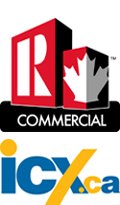
“We’re in the third round of a five round boxing match, but in the first two rounds nobody threw a punch. At some point somebody’s gotta throw a punch.”
Source: REALpac / FPL Canadian Real Estate Sentiment Survey, Fourth Quarter 2009, Released November 3, 2009
I'm sensing a recurring theme on this blog about getting into the game. The time is right to get back into the investing game. Money is flowing, and the economy isn't floundering as badly as some had thought it might still be. Granted, the past 12 months haven't been all peaches and cream, especially in the brokerage world, but contrary to popular perception, the sky hasn't fallen on the Canadian commercial real estate market.
In fact, REALpac just released their Q4 Canadian Real Estate Sentiment Survey and found that, overall, investor sentiment is improving in Canada. It shows that overall sentiment about the market has improved, on their index, from 50 to 68 from Q3 to the beginning of Q4 2009. An impressive improvement to say the least.
So why doesn't the overall market reflect this survey? At least in my corner of the world, Peterborough, Ontario, transactions are WAY down relative to 2008. I did a quick bit of research and found some interesting results.
I compared all MLS® sale transactions recorded by the Peterborough and Kawarthas Association of REALTORS® from January 1 to November 4, 2008 vs. the same period in 2009 (it's an odd time frame, I know, but it seemed like a good idea at the time!). I only looked at transactions over $150,000 in order to weed out the business sales that did not include real estate, and leases that sometimes get recorded as sales.
2008 Number of sales: 39
2009 Number of sales: 26
2008 AVerage sale price: $494,437
2009 Average sale price: $357,385
2008 Average sale to list price ratio: 88.46%
2009 AVerage sale to list price ratio: 73.93%
Of note, there were four transactions over $1M in 2008, including one that was over $2M and only one transaction above $1M in 2009. (Remember, this is a small market with a combined city and county population of only about 135,000 people.)
So what do I see in these numbers?
First, there is an obvious trend toward fewer and smaller deals, including a drastic reduction in transactions over $1M. Secondly, and this is my subjective opinion, there isn't really a lack of interested buyers, rather there's been a significant lack of faith in the market in general on the part of would-be buyers. The perception has been that there ought to be more 'good deals' out there, and that by waiting it out, these 'saavy' buyers will be able to cash in on the distressed assets that must surely be just about ready to come onto the market.
But there haven't been that many distressed properties in Canada. I beleive that a lot of the poor sentiment is spill-over from the US media coverage of the severe slide they've seen in their market. In a recent article on globeinvestor.com, Kirk Kuester, managing director of Colliers was quoted as saying,
"There hasn't been that much distress [in the Canadian market], and if companies do find themselves in a bit of a pinch, it's not that difficult to raise equity on the market."
From the same article:
Brookfield Properties Corp. and its partners have an unexpected problem: They have $5-billion to spend on commercial real estate, but markets have recovered so strongly that they can't find the juicy deals they hoped would lead to 20-per-cent returns.
The stock market's resurgence from March lows has allowed many of the world's most challenged real estate companies to issue stock or sell bonds to solve financial issues brought on by lower rents and higher vacancies. Meanwhile, the sector is showing signs of recovery in Canada, further encouraging landlords to hang on to buildings that had caused concern through the recession.
"There really hasn't been that much out there," said chief executive officer Ric Clark. "When we first started thinking about this, we had many companies on the list as potential targets - the public markets have been so efficient that many have been able to solve their problems."
Brookfield set up a $5-billion real estate investment fund in September with Brookfield Asset Management Inc. and dozens of major institutional investors. The plan was to buy malls and office towers from owners that were struggling to keep tenants and pay mortgages.
While the U.S. market is still going through a historic upheaval (7.9 per cent of lease holders are behind on their payments and one in 10 shopping mall stores sit empty), things have stabilized enough that the consortium is rethinking its ability to score its targeted 20-per-cent return on any investment.
In fact, in the hunt for deals, many Canadian REITs have gone out and raised warchests to buy distressed assets that haven't materialized thus creating the real potential of reducing their stock prices. From
theglobeandmail.com:
But what if the market isn't all that distressed? Third-quarter statistics from RealNet Canada Inc. hinted that a rebound is taking hold in Canadian commercial real estate markets after 18 months of contraction. If there aren't deals to be found, the REITs may have watered down their shares without giving shareholders any reason to hope for better payouts in the future.
"Most REITs have taken advantage of the open capital markets," said Mark Rothschild, an analyst at Genuity Capital Markets. "Most management teams have expressed confidence this capital will be used to take advantage of distressed opportunities - we believe that there will not be many extremely accretive acquisition opportunities and ultimately many of the recent offerings will prove dilutive."
I know I'm starting to sound like a broken record, but why aren't investors, large and small, private and institutional, looking at the cost of NOT investing? What is the real cost of inaction and hence lost opportunity? Waiting for the market to become more active and therefore more competetive means that there will only be even higher prices and reduced opportunities in the future.
What will you do?
Sit on the ropes, waiting for your oponent to wake up and realize you aren't in the game, and be surprised when you get K.O.'d? If you're ready to get started and need some direction, please
drop me a line. Get ready, round 4 is coming up!
 Read more...
Read more...







